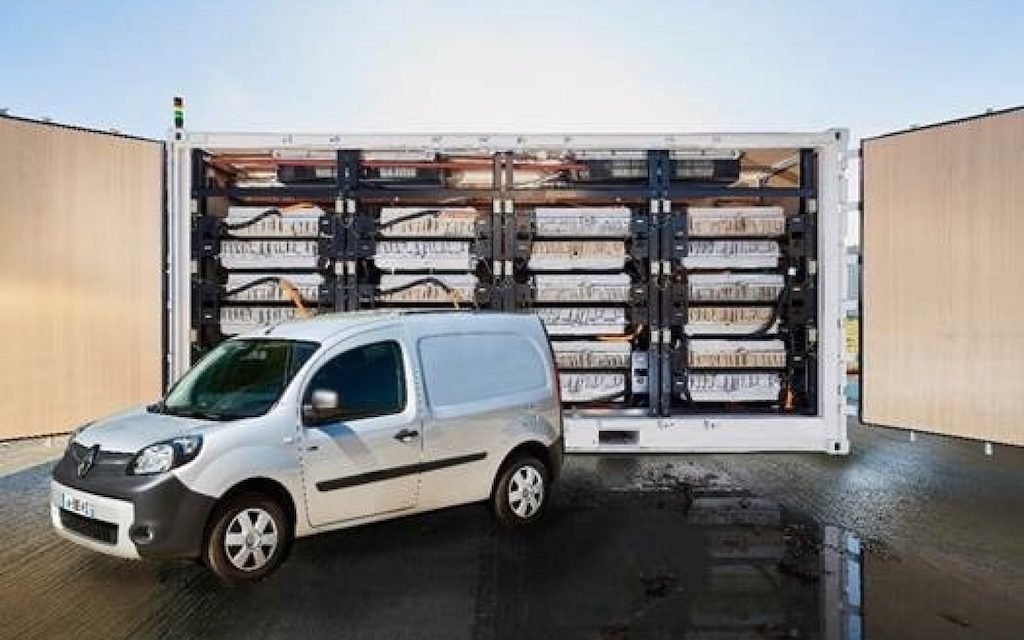Connected Energy formalises second life battery partnership with Renault
Mobilize Power Solutions, the Renault Group-owned electric vehicle (EV) charging technology company, has partnered with Tyneside-based Connected Energy to install second-life battery energy storage systems (BESS) at EV sites.
The partnership aims to support EV charging locations that lack appropriate energy supply with the necessary infrastructure to store energy required for charging. This will cater with the growing demand for EVs on the UK’s roads by presenting enough capacity to install additional chargepoints.
Matthew Lumsden, CEO of Connected Energy explains that when EV batteries are about 25% degraded they are often considered unsuited to life in a vehicle, however they still have sufficient capacity for up to ten years’ more use in a battery energy storage system.
Under the partnership agreement Connected Energy will reuse Renault EV batteries that are past that degradation point to create BESS units for EV charging projects. All of its current systems in operation across the UK and Europe are made from second life Renault vehicle batteries. This partnership formalises an on-going agreement, all of Connected Energy’s existing installations use Renault vehicle batteries.
“Connected Energy has been collaborating with Renault for six years on second life battery energy storage technology and our system is a fundamental part of harnessing the circular economy to provide industrial-scale energy storage,” Lumsden said.
“There is increased awareness of global supply chain issues and electricity grid supply challenges and this partnership addresses both of these in one solution.”
By partnering with Mobilize Power Solutions, Connected Energy gains a partner who is able to optimise its BESS systems for EV charging. Mobilize Power Solutions’ technology is able to track the grid load in real time and manage the battery response to overcome any grid constraints caused by peak loads such as EV charging.
“This partnership makes it possible for many more sites to adopt an EV charging station at remote and challenging environments as well as workplace and transport hubs. Our collaboration truly depicts the value of a circular economy and helps meet carbon neutral targets,” said Mark Dickens, managing director of Mobilize Power Solutions.
Implementing BESS systems could be huge for the EV charging market. The companies said that in some areas, integrating a battery on site can be much less costly than a power upgrade and, in some areas, it is “impossible” to bring in additional cabling and electricity.
This solution has also been successfully trialled in Germany and Belgium where two Connected Energy storage units had been placed on either side of a motorway balancing the grid between the EV chargers.
In July 2022, Connected Energy received £15 million from five new major investors, with the company having stated it will scale up its technology and operations.
Financing had been secured from Caterpillar Venture Capital Inc., the Hinduja Group, Mercuria, OurCrowd and Volvo Energy. They joined existing investors Engie New Ventures, Macquarie and its Low Carbon Innovation Fund.

